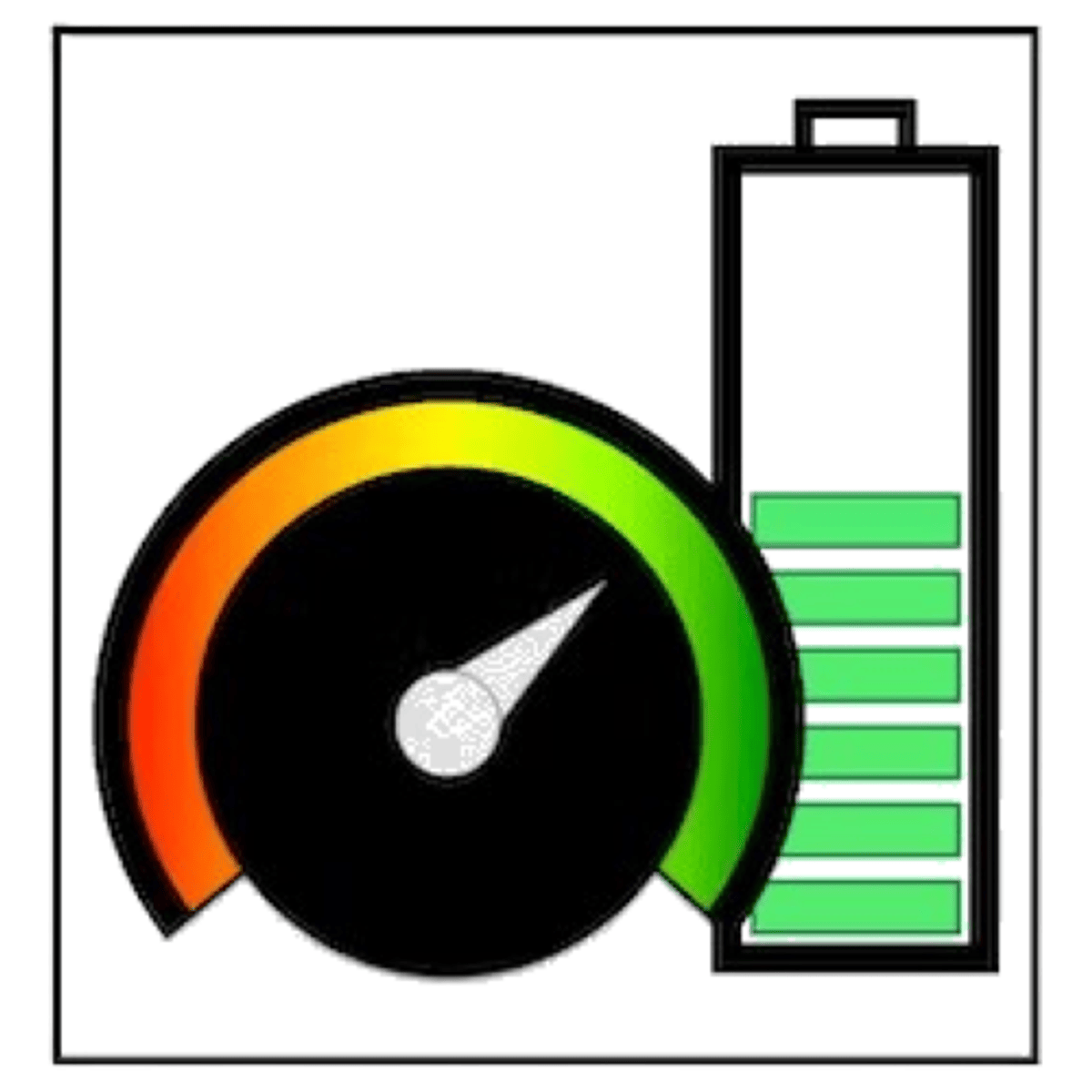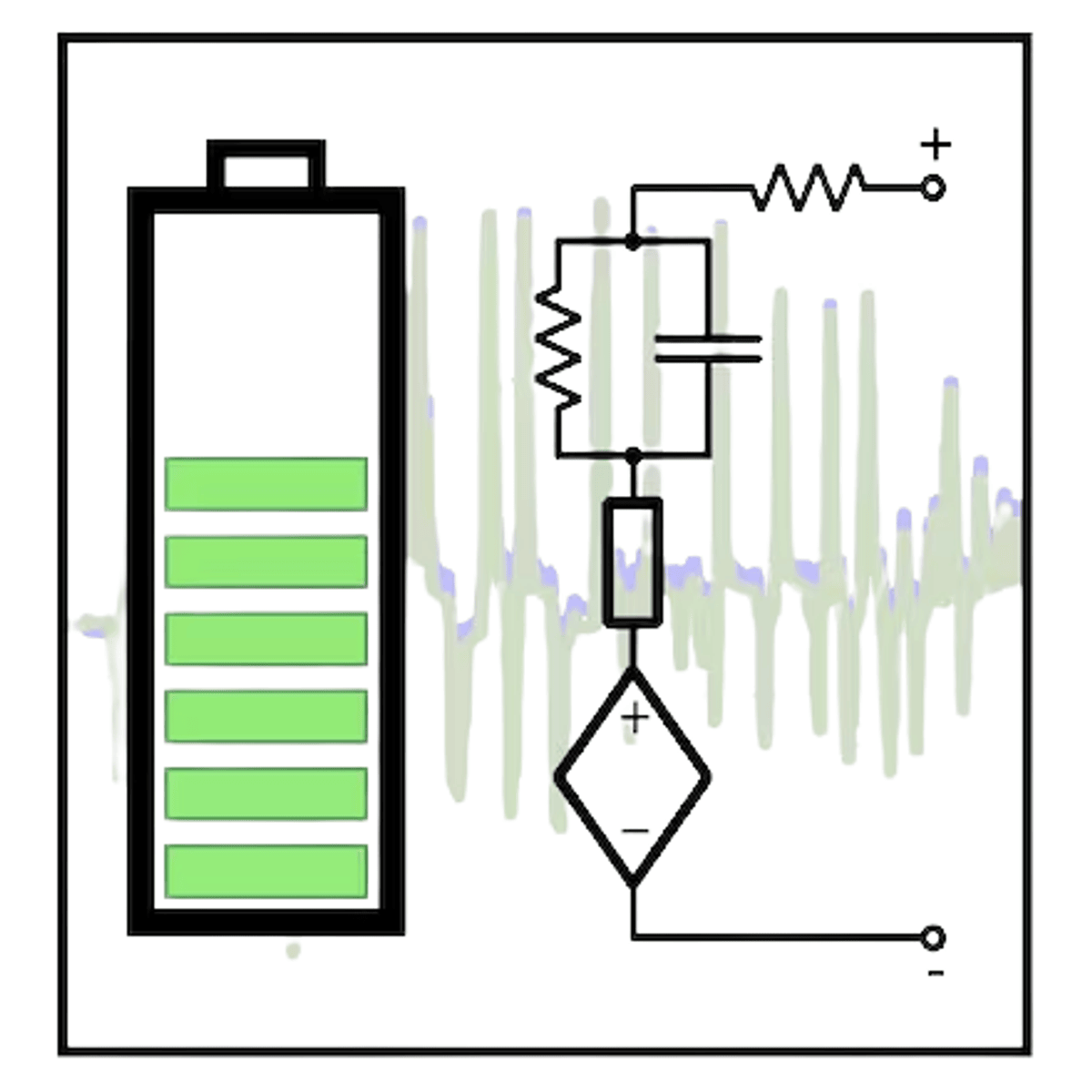Energy Storage Engineer
Energy Storage Engineer: A Comprehensive Career Guide
Energy Storage Engineering sits at the critical intersection of energy generation, distribution, and consumption. These engineers design, develop, and implement systems that store energy for later use. This field is vital for managing the intermittent nature of renewable energy sources like solar and wind, ensuring a stable power supply, and enabling technologies like electric vehicles.
Working as an Energy Storage Engineer offers the chance to tackle complex technical challenges with significant real-world impact. You could be designing grid-scale battery farms that stabilize entire regions' power supplies, developing advanced battery management systems for electric cars, or researching next-generation storage materials. The role is inherently forward-looking, contributing directly to a more sustainable energy future.
What Does an Energy Storage Engineer Do?
Designing and Developing Energy Storage Systems
A core responsibility involves the conceptualization and design of energy storage solutions. This includes selecting appropriate storage technologies (like lithium-ion batteries, flow batteries, or compressed air systems) based on application requirements such as capacity, power output, lifespan, and cost. Engineers create detailed system architectures, considering factors like scalability and integration with existing power grids or devices.
Safety is paramount in energy storage. Engineers meticulously design systems to prevent hazards like thermal runaway in batteries. They develop safety protocols, incorporate monitoring sensors, and ensure compliance with rigorous industry standards and regulations. This involves understanding failure modes and implementing mitigation strategies.
Optimizing performance is another key aspect. Engineers work on maximizing energy efficiency, extending system lifespan, and improving reliability. This often involves sophisticated modeling and simulation to predict behavior under various operating conditions and to refine control algorithms.
These courses provide foundational knowledge in battery systems, a core component of many energy storage solutions.
System Optimization and Management
Energy Storage Engineers are deeply involved in optimizing how storage systems operate. This includes developing strategies for thermal management to maintain optimal temperatures and prevent degradation. They analyze performance data to identify areas for improvement and implement adjustments to control systems.
Mitigating degradation over the system's lifetime is crucial. Engineers study aging mechanisms in batteries and other storage media. They use this understanding to develop operational strategies, like managing charge/discharge cycles, that prolong useful life while maintaining performance.
Integration with broader energy systems, like microgrids or utility grids, requires careful planning and control. Engineers develop algorithms and control logic to ensure the storage system interacts effectively with other components, responding dynamically to grid conditions or energy demands.
These courses delve into the integration of renewable energy sources and the role of microgrids, areas where energy storage is essential.
Collaboration and Compliance
Energy storage projects rarely happen in isolation. Engineers collaborate extensively with professionals from various disciplines, including electrical engineers, materials scientists, software developers, and project managers. Effective communication and teamwork are essential to integrate complex systems successfully.
Working with policymakers and regulatory bodies is often part of the role. Engineers may need to provide technical expertise to inform policy decisions or ensure their designs meet evolving safety and environmental regulations. Understanding the regulatory landscape is crucial for project approval and deployment.
Lifecycle analysis is becoming increasingly important. Engineers assess the environmental impact of storage systems from manufacturing to disposal or recycling. This involves evaluating material sourcing, energy consumption during production, operational efficiency, and end-of-life management strategies.
Educational Pathways to Become an Energy Storage Engineer
Foundation Through Formal Degrees
A bachelor's degree in a relevant engineering field is typically the starting point. Common choices include Electrical Engineering, Chemical Engineering, Materials Science, or Mechanical Engineering. Strong foundations in physics, chemistry, mathematics (especially calculus and differential equations), and thermodynamics are essential.
Coursework often includes circuit theory, thermodynamics, fluid mechanics, materials science, and power systems. Practical lab experience gained during undergraduate studies is highly valuable, providing hands-on skills in measurement, experimentation, and data analysis.
Some universities offer specialized tracks or courses in energy systems, renewable energy, or electrochemistry within these broader engineering programs. Seeking out these opportunities can provide a more direct path into the energy storage field.
These courses cover fundamental principles in electrical engineering and electrodynamics relevant to energy storage systems.
Advanced Studies and Specialization
For research-focused roles or positions requiring deep technical expertise, a graduate degree (Master's or PhD) is often beneficial or required. Graduate programs allow for specialization in areas directly related to energy storage, such as electrochemistry, battery technology, power electronics, or materials science for energy applications.
Master's programs often combine advanced coursework with a research project or thesis, providing deeper knowledge and specialized skills. PhD programs are research-intensive, focusing on advancing the state-of-the-art in a specific area, such as developing novel battery chemistries (solid-state, metal-air) or advanced modeling techniques.
Research areas at the PhD level might include improving energy density, enhancing safety, reducing costs, developing sustainable materials, or designing sophisticated battery management systems. This advanced training prepares individuals for roles in R&D, academia, or leading technical teams in industry.
These books offer in-depth knowledge on battery technologies and materials, suitable for those pursuing advanced studies or specialization.
Professional Certifications
While not always mandatory, professional certifications can enhance credibility and career prospects. The Professional Engineer (PE) license, particularly in Electrical or Chemical Engineering, is a recognized standard in many regions. It demonstrates a high level of competence and adherence to ethical standards.
Obtaining a PE license typically requires graduating from an accredited engineering program, passing the Fundamentals of Engineering (FE) exam, gaining several years of relevant work experience under a licensed PE, and passing the Principles and Practice of Engineering (PE) exam in a chosen discipline.
Specific certifications related to energy storage technologies or safety standards may also be available through industry organizations. While less common than the PE license, these can signal specialized expertise in niche areas.
Leveraging Online Learning for Energy Storage Careers
Building Foundational Knowledge Online
For those exploring energy storage or pivoting from adjacent fields, online courses offer a flexible and accessible way to build foundational knowledge. Platforms like OpenCourser aggregate courses covering relevant topics like electrical engineering fundamentals, thermodynamics, materials science, and renewable energy systems.
Online learning allows you to study at your own pace, fitting education around existing commitments. This can be particularly valuable for working professionals seeking to upskill or individuals testing the waters before committing to a full degree program. While online courses may not fully replace a traditional engineering degree for all roles, they can provide crucial knowledge and demonstrate initiative to potential employers.
Transitioning into a complex field like energy storage engineering requires dedication. Be prepared to invest significant time and effort. Grounding yourself in the fundamentals through structured online learning is a great first step, but supplementing this with practical projects is key.
These courses offer introductions to renewable energy concepts and technologies, providing context for the role of energy storage.
Practical Skills Through Projects and Tools
Theoretical knowledge is essential, but practical application solidifies understanding. Look for online courses that incorporate hands-on projects, simulations, or case studies. Some learners undertake personal projects, such as building small-scale battery monitoring systems (using platforms like Arduino or Raspberry Pi) or simulating energy storage performance.
Familiarity with industry-standard software tools is advantageous. While access to commercial software like COMSOL Multiphysics might be limited, open-source alternatives like PyBaMM (Python Battery Mathematical Modelling) allow for simulating battery behavior. Learning programming languages commonly used in the field, such as Python or MATLAB, is also highly beneficial and achievable through online resources.
Documenting your projects, perhaps through a personal website or portfolio, can effectively showcase your skills and passion to potential employers, especially when transitioning from a different field.
This book provides a systems-level view, complementing practical project work.
These books cover various aspects of energy storage, offering broader context and deeper dives into specific areas.
Microcredentials and Focused Learning
The energy storage field is rapidly evolving. Microcredentials, specialized certificates, or shorter online courses focused on niche topics can help you stay current or deepen expertise in specific areas. Examples include courses on battery safety standards, specific battery chemistries, grid integration techniques, or battery recycling processes.
These focused learning modules can be particularly useful for demonstrating expertise in emerging areas or technologies relevant to specific job roles. They supplement broader foundational knowledge and show a commitment to continuous learning.
OpenCourser allows you to browse engineering courses across various platforms, making it easier to find specialized training relevant to energy storage. Using the "Save to List" feature helps organize potential courses for future study.
Career Trajectory and Advancement
Starting Your Career
Entry-level positions often involve supporting senior engineers. Titles might include Test Engineer, Systems Analyst, Junior Design Engineer, or Research Assistant. Responsibilities typically involve running tests on battery cells or systems, analyzing performance data, assisting with design modifications, or supporting simulation and modeling tasks.
These initial roles provide invaluable hands-on experience with hardware, testing procedures, and data analysis tools. It's a critical period for learning industry practices, understanding safety protocols, and building a practical understanding of how energy storage systems function in real-world conditions.
Networking within the company and industry, seeking mentorship, and demonstrating a strong work ethic and willingness to learn are key during this phase.
Mid-Career Development
With several years of experience, engineers typically take on more responsibility and complex projects. Mid-career roles might include Project Engineer, Lead Systems Engineer, or R&D Specialist. They may lead design efforts for subsystems, manage small projects, or specialize in areas like thermal management, battery management systems (BMS), or grid integration.
At this stage, engineers often develop deeper technical expertise in a specific area of energy storage. They may mentor junior engineers, contribute to technical strategy, and have more direct interaction with clients or cross-functional teams. Strong project management and communication skills become increasingly important.
Pursuing advanced degrees or professional certifications like the PE license can support advancement to mid-career and senior roles. Continuous learning is essential to keep pace with technological advancements.
Senior Roles and Leadership
Senior Energy Storage Engineers possess deep technical expertise and often significant project or team leadership experience. Titles might include Principal Engineer, Engineering Manager, Systems Architect, or Research Scientist. They typically lead large-scale projects, define technical roadmaps, make critical design decisions, and mentor teams.
In smaller companies or startups, experienced engineers might reach executive levels, such as Chief Technology Officer (CTO), guiding the company's overall technology strategy and innovation efforts in energy storage.
Alternative paths exist outside direct engineering roles. Experienced engineers might move into technical sales, consulting, policy advising, or academic positions, leveraging their deep understanding of the technology and market.
Salary Expectations
Salaries for Energy Storage Engineers vary based on location, experience level, education, company size, and specific industry segment (e.g., utilities, automotive, consumer electronics). Generally, compensation reflects the high demand for skilled engineers in this growing field.
Entry-level positions typically offer competitive engineering salaries, often comparable to other electrical or chemical engineering roles. Mid-career engineers can expect substantial salary growth as they gain experience and take on more responsibility. Senior engineers and those in leadership positions command significant salaries, particularly in high-demand areas or specialized roles.
It's advisable to research salary benchmarks for specific regions and roles using resources like the U.S. Bureau of Labor Statistics (BLS) or industry salary surveys. However, remember that the field is dynamic, and compensation can change with market conditions and technological shifts.
The Energy Storage Landscape: Applications and Trends
Diverse Market Applications
Energy storage solutions are deployed across various scales. Utility-scale storage systems, often large battery farms, help stabilize the power grid, manage peak demand, and integrate large amounts of renewable energy. These projects involve significant engineering challenges related to scale, grid interconnection, and long-term reliability.
Residential and commercial storage systems are smaller, often paired with rooftop solar installations. These systems provide backup power, reduce electricity bills by storing energy when prices are low, and can participate in grid services programs. Engineers working in this space focus on cost-effectiveness, user-friendliness, and safety for consumer applications.
The electric vehicle (EV) industry is a major driver of battery technology development. Energy Storage Engineers in this sector work on designing high-energy-density, fast-charging, safe, and durable battery packs for vehicles. Other applications include consumer electronics, industrial equipment, and off-grid power systems.
This course focuses specifically on EV electronics, a major application area.
This book explores the specific needs of energy storage for electric vehicles.
Emerging Technologies and Innovations
While lithium-ion batteries currently dominate, research is intense on next-generation storage technologies. Engineers are exploring alternatives like sodium-ion batteries (using more abundant materials), solid-state batteries (potentially offering higher energy density and safety), flow batteries (suited for long-duration storage), and metal-air batteries.
Advances in materials science are crucial, with researchers investigating novel electrode and electrolyte materials to improve performance, lower costs, and enhance sustainability. Understanding these emerging technologies is vital for engineers looking towards the future of the field.
The integration of Artificial Intelligence (AI) and Machine Learning (ML) is another significant trend. These techniques are used for predictive maintenance (forecasting battery health and potential failures), optimizing charging/discharging strategies, and improving battery management system algorithms.
Supply Chains and Geopolitics
The production of batteries relies heavily on specific raw materials like lithium, cobalt, nickel, and graphite. The geographic concentration of these resources creates complex supply chains and geopolitical considerations. Engineers and companies must navigate potential supply disruptions, price volatility, and ethical sourcing concerns.
Efforts are underway to diversify supply chains, develop batteries using more abundant materials, and improve recycling processes to create a more circular economy for battery materials. Understanding these broader economic and geopolitical factors is increasingly important for strategic decision-making in the energy storage industry.
Reports from organizations like the World Economic Forum or consulting firms often analyze these supply chain dynamics and their impact on the energy transition.
Navigating Challenges in Energy Storage
Safety Considerations
Safety, particularly concerning lithium-ion batteries, remains a critical challenge. Thermal runaway, leading to fires or explosions, is a known risk that requires careful engineering design and management. Engineers focus on developing robust thermal management systems, incorporating safety features at the cell and pack level, and refining battery management system (BMS) algorithms to detect and prevent hazardous conditions.
Ongoing research aims to develop inherently safer battery chemistries, such as solid-state batteries, which replace flammable liquid electrolytes. Adherence to stringent safety standards (like UL standards) and rigorous testing protocols are essential parts of the design and manufacturing process.
Recycling and Sustainability
As the deployment of energy storage systems grows, managing end-of-life batteries becomes a significant challenge. Developing efficient and cost-effective recycling processes is crucial to recover valuable materials and minimize environmental impact. Current recycling infrastructure struggles to keep pace with the volume and variety of batteries entering the waste stream.
Engineers are involved in designing batteries for easier disassembly and recycling ("Design for Recycling"). Research focuses on improving recycling technologies to achieve higher recovery rates for critical materials like lithium, cobalt, and nickel, and to handle newer battery chemistries effectively.
The goal is to establish a circular economy where materials from used batteries are efficiently fed back into the manufacturing process, reducing reliance on primary resource extraction and minimizing waste.
Performance and Cost Trade-offs
A constant challenge in energy storage engineering is balancing competing performance metrics and cost. Improving energy density (storing more energy in a smaller, lighter package) often comes with increased cost or potential safety trade-offs. Similarly, enhancing power density (the ability to charge/discharge quickly) or cycle life (durability) can impact other parameters.
Engineers must make informed decisions based on the specific application requirements. For utility-scale storage, cost per kilowatt-hour ($/kWh) and lifespan might be prioritized, while for electric vehicles, energy density and safety are paramount. Continuous innovation in materials, cell design, and manufacturing processes is needed to push these boundaries and lower costs.
Exploring Novel Materials
The search for better materials is at the heart of advancing energy storage technology. Researchers and engineers are exploring a wide range of novel materials beyond traditional lithium-ion components. This includes investigating new electrode materials (like silicon anodes or high-nickel cathodes), solid electrolytes for solid-state batteries, and alternative ions (like sodium or magnesium).
Materials like graphene, perovskites, and various nanomaterials are being studied for their potential to enhance conductivity, stability, or energy storage capacity. This area requires a deep understanding of materials science, electrochemistry, and physics.
Success in developing and scaling up production of these novel materials could lead to significant breakthroughs in energy storage performance, cost, and sustainability.
Global Perspectives and Opportunities
Geographic Demand Hotspots
The demand for energy storage solutions is global, but certain regions are experiencing particularly rapid growth. North America, Europe, and East Asia (particularly China, Japan, and South Korea) are major hubs for research, manufacturing, and deployment, driven by ambitious renewable energy targets, EV adoption policies, and established industrial bases.
Emerging economies in Asia, Latin America, and Africa also represent significant growth opportunities as they seek to improve grid reliability, integrate renewables, and expand energy access. These markets often present unique challenges and requirements, such as adapting systems for different climates or grid conditions.
Understanding regional policies, market dynamics, and grid infrastructure is crucial for engineers working on international projects or considering roles abroad.
International Career Paths
The global nature of the energy storage industry offers opportunities for engineers seeking international experience. Multinational corporations involved in battery manufacturing, automotive production, or renewable energy development often have operations and R&D centers worldwide.
Expatriate roles may be available, particularly in regions with high growth or specific technical needs. These roles often involve transferring expertise, managing projects in different cultural contexts, or adapting designs to local requirements.
Working internationally requires adaptability, cross-cultural communication skills, and sometimes proficiency in foreign languages. It offers a chance to gain diverse experience and contribute to energy solutions on a global scale.
Cross-Cultural Design and Collaboration
Designing energy storage systems for different global markets requires considering local factors. This includes environmental conditions (e.g., extreme heat, cold, or humidity impacting battery performance and thermal management), grid standards and regulations, local manufacturing capabilities, and user expectations.
Engineers working on multinational projects collaborate with teams from diverse backgrounds. Strong communication, cultural sensitivity, and the ability to navigate different working styles are essential soft skills for success in these global environments.
Language skills, while not always mandatory if English is the project language, can significantly enhance collaboration and understanding when working with international teams or clients.
Frequently Asked Questions (FAQs)
Is a PhD required for advanced roles?
A PhD is often beneficial but not strictly required for many advanced roles in industry. It is most common in R&D-focused positions, particularly those involving fundamental research or the development of entirely new technologies. For roles focused on system design, project management, or application engineering, a Bachelor's or Master's degree combined with significant relevant experience is often sufficient.
Many senior engineers and technical leaders hold Master's degrees or have advanced through experience after a Bachelor's degree. The necessity of a PhD depends heavily on the specific role, company culture (research-intensive vs. product-focused), and individual career goals.
Ultimately, demonstrated technical expertise, problem-solving skills, and leadership capabilities gained through experience are highly valued, regardless of the highest degree obtained.
How stable is the job market?
The job market for Energy Storage Engineers is generally considered strong and growing, driven by the global push for decarbonization, the expansion of renewable energy, and the growth of the electric vehicle market. Government policies and investments further support this trend. According to the BLS Occupational Outlook Handbook, fields related to renewable energy and electrical grid modernization show positive growth prospects.
However, like any field influenced by technology cycles and policy shifts, there can be fluctuations. Specific segments might experience faster or slower growth depending on factors like funding availability, material costs, or changes in regulations. Shifts in dominant technologies (e.g., from lithium-ion to solid-state) could also influence demand for specific skill sets over time.
Overall, the long-term outlook appears robust due to the fundamental need for energy storage in modern energy systems. Continuous learning and adaptability remain key to navigating any potential market shifts.
Can mechanical engineers transition into this field?
Yes, mechanical engineers can successfully transition into energy storage engineering. Many aspects of energy storage systems involve mechanical principles, such as thermal management (heat transfer, fluid dynamics), structural design of battery packs and enclosures, vibration analysis, and manufacturing processes.
Mechanical engineers looking to transition may need to supplement their background with knowledge in electrochemistry, electrical circuits, and battery management systems. This can be achieved through graduate coursework, specialized online courses, or on-the-job training.
Highlighting transferable skills like thermal modeling, CAD design, finite element analysis (FEA), and systems integration can strengthen a mechanical engineer's profile for energy storage roles.
What programming languages are valuable?
Proficiency in certain programming languages is highly valuable. Python is widely used for data analysis, simulation, modeling (e.g., using libraries like NumPy, SciPy, Pandas, and specialized tools like PyBaMM), and developing control algorithms. MATLAB and Simulink are also frequently used, especially in academia and for control system design and simulation.
For engineers working on embedded systems, such as battery management systems (BMS), proficiency in C or C++ is often required. Familiarity with database languages (like SQL) can be useful for handling large datasets from testing or operations.
While deep software engineering skills aren't always necessary, the ability to script, automate tasks, analyze data programmatically, and understand control software is a significant advantage.
How does this role differ from a Renewable Energy Engineer?
While there is overlap, Energy Storage Engineers focus specifically on the storage aspect, whereas Renewable Energy Engineers typically have a broader focus on the generation technologies themselves (solar PV, wind turbines, hydro, etc.) and their integration into the power system.
A Renewable Energy Engineer might design a solar farm layout or optimize wind turbine placement, while an Energy Storage Engineer would design the battery system paired with that farm to manage its intermittent output. Energy Storage Engineers delve deeper into battery chemistry, thermal management, and BMS, while Renewable Energy Engineers focus more on resource assessment, generator technology, and grid interconnection from the generation side.
Collaboration between these roles is common, especially on projects involving the integration of renewables and storage. Some roles may even combine aspects of both disciplines.
Are there age barriers for late-career entrants?
The engineering field generally values experience and expertise, and energy storage is no exception. While some technology sectors might have perceived biases, the demand for skilled engineers in energy storage often outweighs such concerns. Late-career entrants bringing relevant experience from other engineering disciplines (e.g., power systems, automotive, chemical processing, thermal design) can be highly valuable.
Highlighting transferable skills, demonstrating a willingness to learn new technologies (perhaps through recent coursework or certifications), and showcasing adaptability are key. Emphasize the mature engineering judgment, project management experience, and problem-solving skills gained over a career.
Networking and clearly articulating how past experience applies to the challenges in energy storage can help overcome any potential hurdles. The urgency of the energy transition means companies are often eager to find experienced talent capable of contributing quickly.
Embarking on a career as an Energy Storage Engineer means entering a dynamic and impactful field crucial for our energy future. It requires a strong technical foundation, continuous learning, and a passion for solving complex problems. Whether you are starting your educational journey, considering a career pivot, or looking to advance within the field, the opportunities to contribute are significant and growing. Utilizing resources like OpenCourser can help you find the learning pathways needed to build and refine the skills required for success in this vital engineering discipline.














